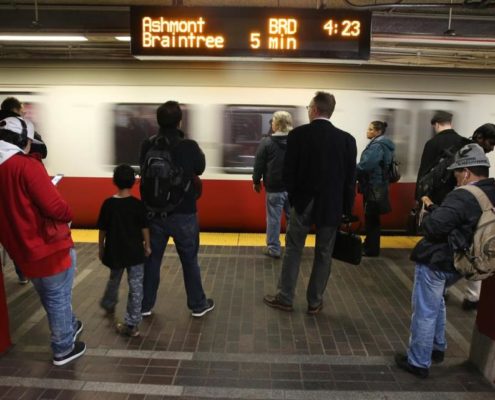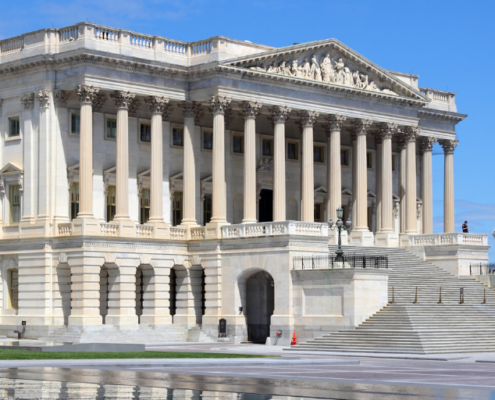
U.S. Transit Systems and COVID-19: How does the MBTA Compare?
0 Comments
/
The MBTA is taking a number of important steps to mitigate risks associated with the coronavirus, but some transit agencies around the country - from Philadelphia to San Francisco - have done significantly more.

A Look at the Massachusetts Industries that are Most Vulnerable Due to COVID-19
A new report using recent data provided by the Massachusetts Executive Office of Labor and Workforce Development shows that hospitality, retail trade, healthcare and social assistance, and construction are the industries that have suffered the most unemployment as a result of the coronavirus outbreak.

The Massachusetts Crises Of Care Guidelines Need Re-Thinking
This new study contends that the Massachusetts Department of Public Health’s (DPH’s) Crises Standards of Care (CSC) issued earlier this month bear the earmarks of a state bureaucratic effort. The guidelines need to be rethought under a process that includes a thorough vetting by Massachusetts citizens.

Shifting to Online Learning in the COVID-19 Spring
This new Pioneer Institute and ASU Prep Digital policy brief offers five important considerations for schools and districts dealing with the shift to online education in response to COVID-19.

Unprecedented Massachusetts unemployment projections set the stage for a state budget crisis
The COVID-19 recession could cause Massachusetts’ unemployment rate to skyrocket to 25.4 percent by this June, according to a new policy brief published by Pioneer Institute. The Commonwealth’s unemployment rate was 2.5 percent in February.

Quality Adjusted Life Years (QALY): The Threat to Older Americans
This report examines how the QALY methodology to determine drug treatment value threatens to discriminate against older adults by placing a lower value on treatments that would extend the life of or improve quality of life for older patients. This clear bias against providing access to therapies to seniors comes at a critical and especially vulnerable time for older Americans given the coronavirus disease (COVID-19).

The Federal Coronavirus Relief Act impact on Massachusetts
Congress has passed the Coronavirus Aid, Relief, and Economic Security Act, providing $2.2 trillion in financial relief to laid-off workers, hospitals, and distressed industries. The bill provides an extra $600 per week in unemployment benefits to each recipient for up to four months and extends benefits to previously ineligible categories of workers, including independent contractors, those with limited work history, and self-employed persons.

Keeping Students Academically Engaged During the Coronavirus Crisis – Part One
Pioneer Institute calls on the U.S. Department of Education (USED) to quickly establish comprehensive but concise guidelines for federal law around school closures. Because of the COVID-19 virus, schools have been closing rapidly around the nation, and they are trying to transition to alternative, largely online, learning programs.
